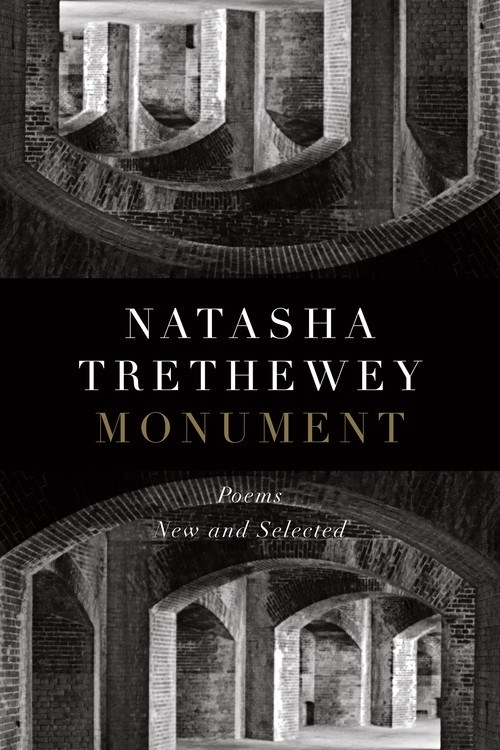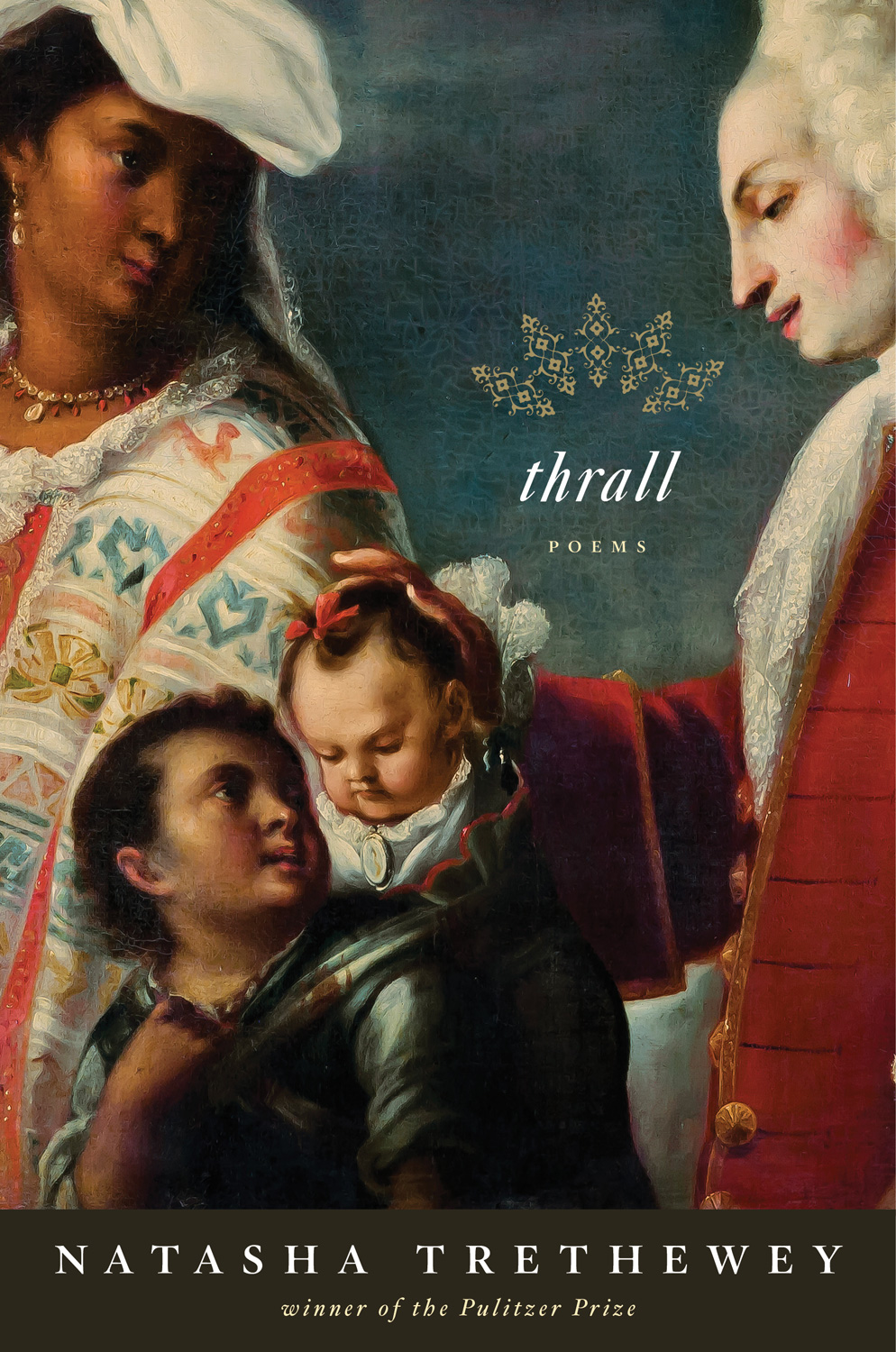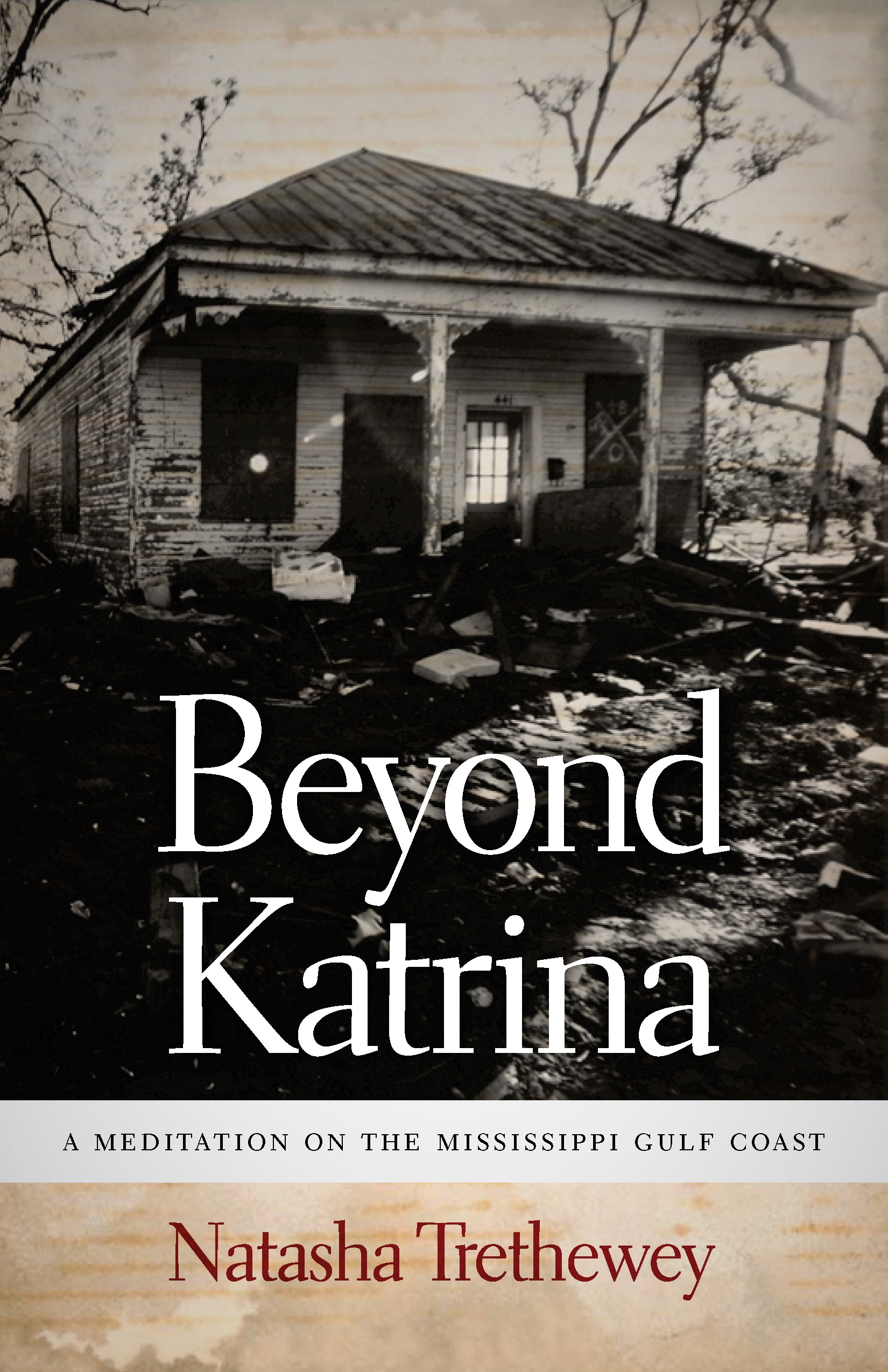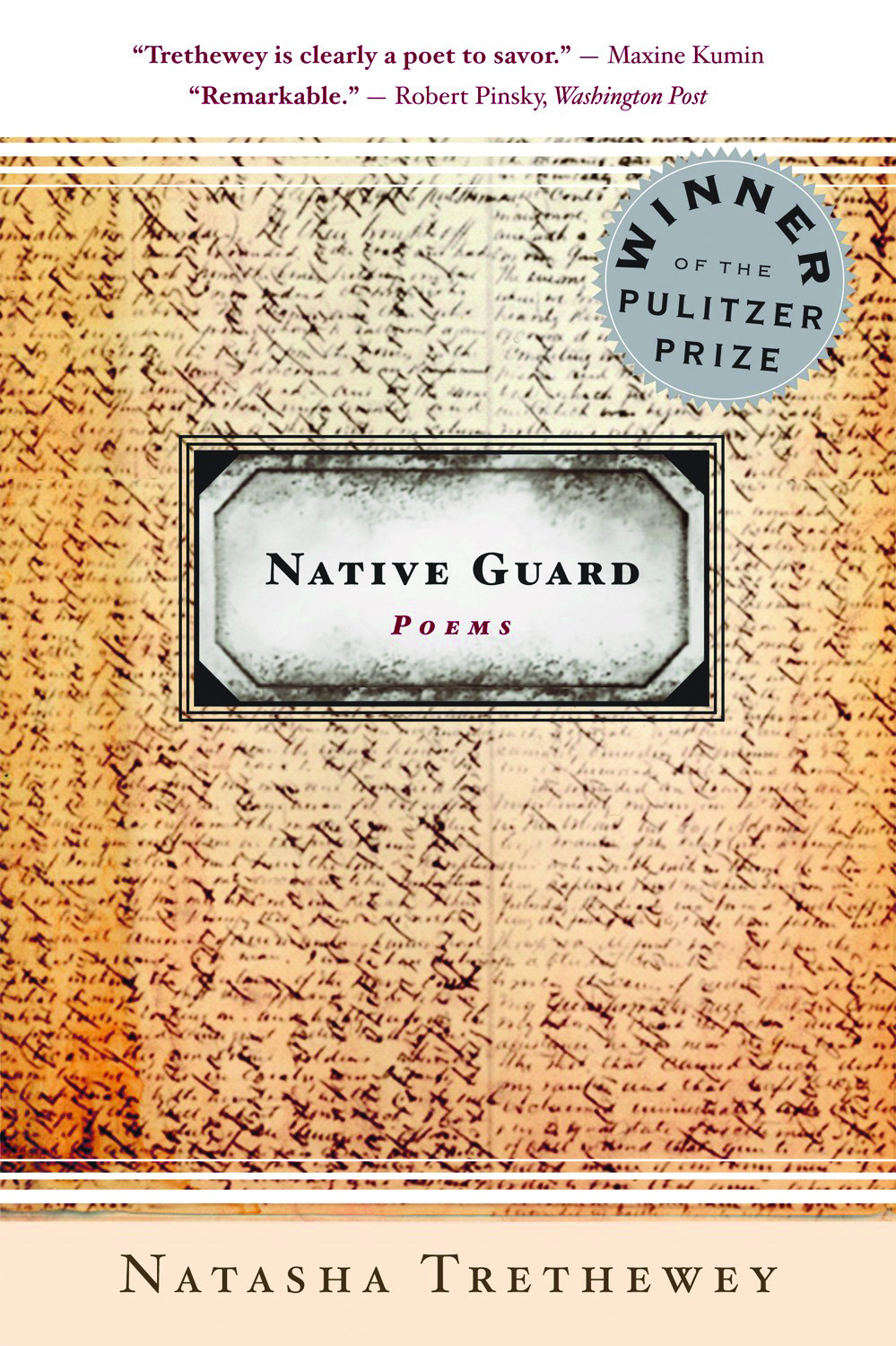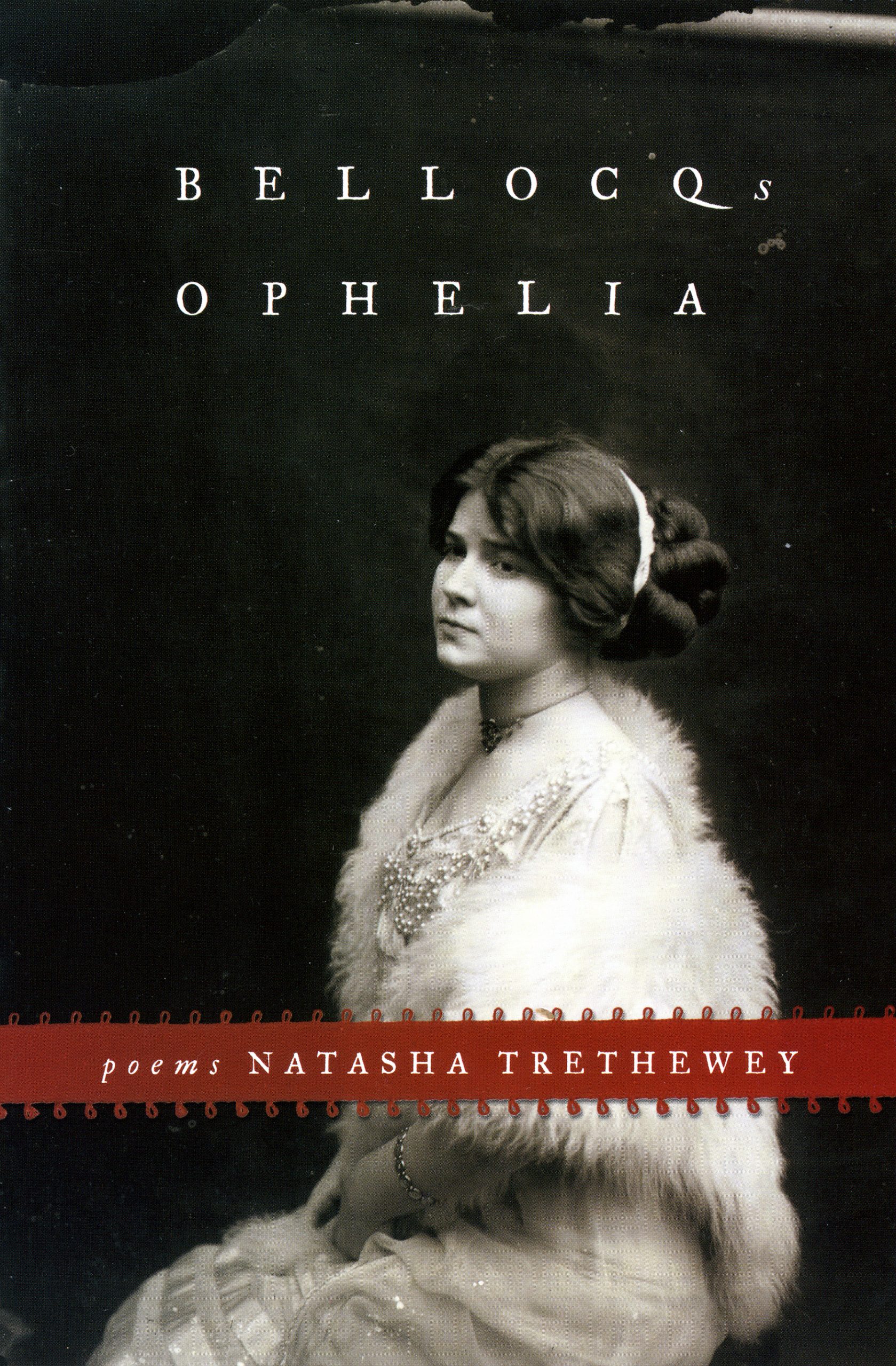

Natasha Trethewey
United States Poet Laureate (2012-2014)
Pulitzer Prize-winning Poet

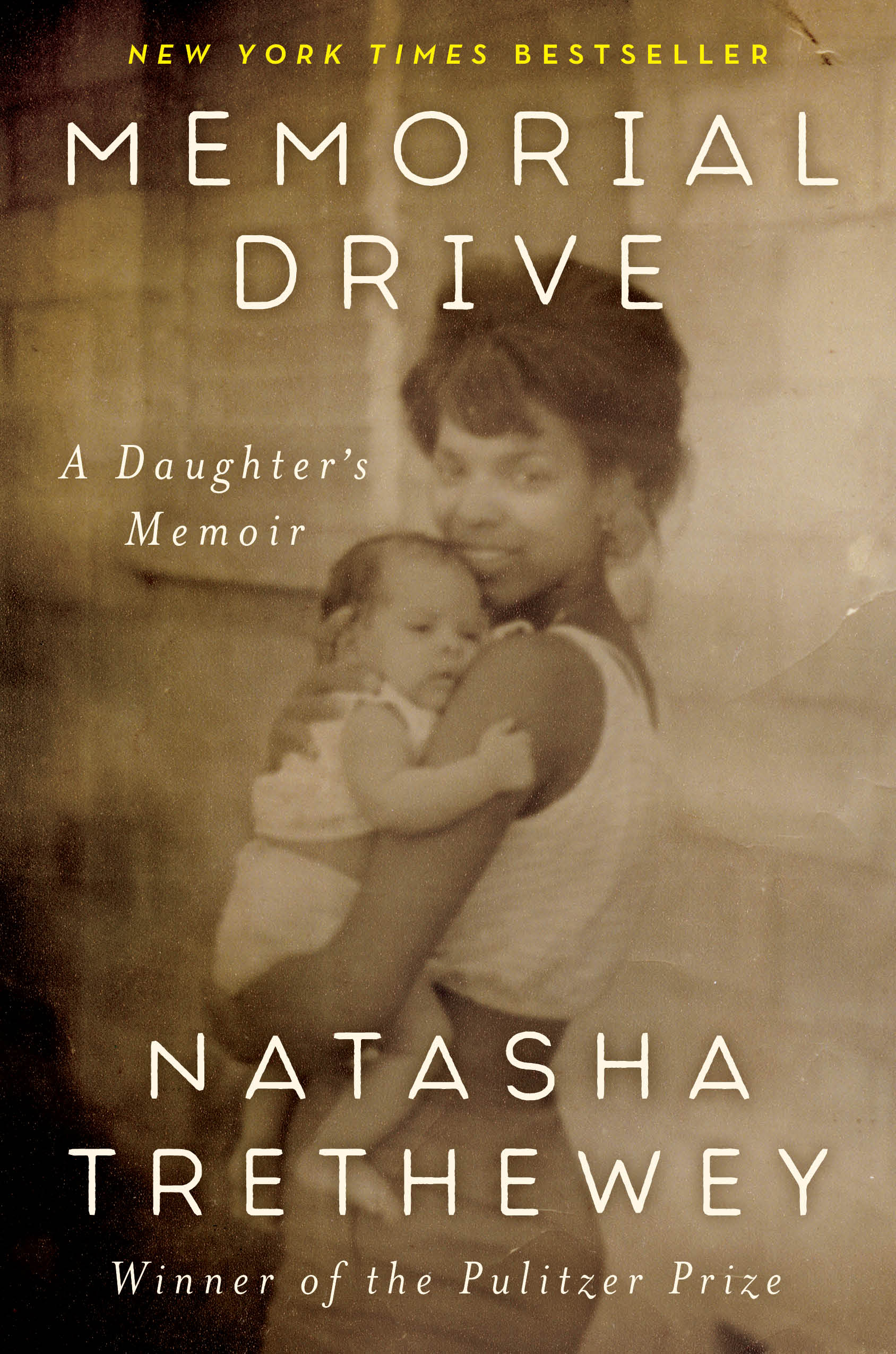
Readings &
Lecture Topics
- An Evening with Natasha Trethewey
Biography
“Trethewey has a genuine gift for verse forms, and the depth of her engagement in language marks her as a true poet.” —Washington Post
“Trethewey’s writing mines the cavernous isolation, brutality, and resilience of African American history, tracing its subterranean echoes to today.” —New Yorker
“Natasha Trethewey’s poems plumb personal and national history to meditate on the conundrum of American racial identities.” —Marilyn Nelson
Pulitzer Prize-winner Natasha Trethewey served two terms as the 19th Poet Laureate of the United States (2012-2014). In his citation, Librarian of Congress James Billington wrote, “Her poems dig beneath the surface of history—personal or communal, from childhood or from a century ago—to explore the human struggles that we all face.” Trethewey was the first Southerner to receive the honor since Robert Penn Warren, in 1986, and the first African-American since Rita Dove, in 1993.
Trethewey is the author of Monument (2018), which was longlisted for the 2018 National Book Award, a retrospective drawing together verse that delineates the stories of working class African American women, a mixed-race prostitute, one of the first black Civil War regiments, mestizo and mulatto figures in Casta paintings, Gulf coast victims of Katrina; Thrall (2012), which the Washington Post called “a powerful, beautifully crafted book”; Native Guard (2007), for which she won the Pulitzer Prize; Bellocq’s Ophelia (2002), named a Notable Book for 2003 by the American Library Association; and Domestic Work (2000), which was selected by Rita Dove as the winner of the inaugural Cave Canem Poetry Prize for the best first book by an African American poet and won both the 2001 Mississippi Institute of Arts and Letters Book Prize and the 2001 Lillian Smith Award for Poetry. Trethewey is also the author of the poetry chapbook Congregation (2015) and the prose book Beyond Katrina: A Meditation on the Mississippi Gulf Coast (2012), and she served as editor of The Best American Poetry 2017. In addition to her poetry, Trethewey is the author of two memoirs The House of Being (2024) and Memorial Drive (2020).
Among her many honors, Trethewey is the recipient of the 2020 Bobbitt Prize for Lifetime Achievement, a 2017 Heinz Award in the Arts and Humanities category, as well as the 2016 Academy of American Poets Fellowship, which recognizes distinguished poetic achievement. In the judge’s citation, Marilyn Nelson stated: “Natasha Trethewey’s poems plumb personal and national history to meditate on the conundrum of American racial identities. Whether writing of her complex family torn by tragic loss, or in diverse imagined voices from the more distant past, Trethewey encourages us to reflect, learn, and experience delight. The wide scope of her interests and her adept handling of form have created an opus of classics both elegant and necessary.”
Trethewey has also received fellowships from the Guggenheim Foundation, the Rockefeller Foundation Bellagio Study Center, the National Endowment for the Arts, and the Bunting Fellowship Program of the Radcliffe Institute for Advanced Study at Harvard. In 2013 she was inducted into the American Academy of Arts and Sciences. At Northwestern University she is a Board of Trustees Professor of English in the Weinberg College of Arts and Sciences.
In her second term as United States Poet Laureate, Trethewey’s signature project was a PBS NewsHour Poetry Series, “Where Poetry Lives.” In this series Trethewey traveled with Senior Correspondent Jeffrey Brown to cities across the United States in order to explore societal issues such as Alzheimer’s, domestic abuse, the civil rights movement, and incarcerated teenagers—all through the prism of poetry, literature, and Trethewey’s own personal experiences.
In addition to being United States Poet Laureate, she held the position of State Poet Laureate of Mississippi from 2012-2016.
Short Bio
Natasha Trethewey served two terms as the 19th Poet Laureate of the United States (2012-2014). She is the author of five collections of poetry, Monument (2018), which was longlisted for the 2018 National Book Award; Thrall (2012); Native Guard (2006), for which she was awarded the Pulitzer Prize, Bellocq’s Ophelia (2002); and Domestic Work (2000), which was selected by Rita Dove as the winner of the inaugural Cave Canem Poetry Prize for the best first book by an African American poet and won both the 2001 Mississippi Institute of Arts and Letters Book Prize and the 2001 Lillian Smith Award for Poetry. In addition to her poetry, Trethewey is the author of two memoirs The House of Being (2024) and Memorial Drive (2020). Her book of nonfiction, Beyond Katrina: A Meditation on the Mississippi Gulf Coast, appeared in 2010. She is the recipient of fellowships from the National Endowment for the Arts, the Guggenheim Foundation, the Rockefeller Foundation, the Beinecke Library at Yale, and the Bunting Fellowship Program of the Radcliffe Institute for Advanced Study at Harvard. At Northwestern University she is a Board of Trustees Professor of English in the Weinberg College of Arts and Sciences. In 2012 she was named Poet Laureate of the State of Mississippi and in 2013 she was inducted into the American Academy of Arts and Sciences.
Visit Author WebsiteVideos
Publications
The House of Being
Memoir, 2024
Memorial Drive
Memoir, 2020
At age nineteen, Natasha Trethewey had her world turned upside down when her former stepfather shot and killed her mother. Grieving and still new to adulthood, she confronted the twin pulls of life and death in the aftermath of unimaginable trauma and now explores the way this experience lastingly shaped the artist she became. With penetrating insight and a searing voice that moves from the wrenching to the elegiac, Pulitzer Prize–winning poet Natasha Trethewey explores this profound experience of pain, loss, and grief as an entry point into understanding the tragic course of her mother’s life and the way her own life has been shaped by a legacy of fierce love and resilience. Moving through her mother’s history in the deeply segregated South and through her own girlhood as a “child of miscegenation” in Mississippi, Trethewey plumbs her sense of dislocation and displacement in the lead-up to the harrowing crime that took place on Memorial Drive in Atlanta in 1985. Memorial Drive is a compelling and searching look at a shared human experience of sudden loss and absence but also a piercing glimpse at the enduring ripple effects of white racism and domestic abuse. Animated by unforgettable prose and inflected by a poet’s attention to language, this is a luminous, urgent, and visceral memoir from one of our most important contemporary writers and thinkers.
Monument
Poetry, 2018
Layering joy and urgent defiance—against physical and cultural erasure, against white supremacy whether intangible or graven in stone—Trethewey’s work gives pedestal and voice to unsung icons. Monument, Trethewey’s first retrospective, draws together verse that delineates the stories of working class African American women, a mixed-race prostitute, one of the first black Civil War regiments, mestizo and mulatto figures in Casta paintings, Gulf coast victims of Katrina. Through the collection, inlaid and inextricable, winds the poet’s own family history of trauma and loss, resilience and love. In this setting, each section, each poem drawn from an “opus of classics both elegant and necessary,”* weaves and interlocks with those that come before and those that follow. As a whole, Monument casts new light on the trauma of our national wounds, our shared history. This is a poet’s remarkable labor to source evidence, persistence, and strength from the past in order to change the very foundation of the vocabulary we use to speak about race, gender, and our collective future.
Thrall
Poetry, 2012
By unflinchingly charting the intersections of public and personal history, Thrall explores the historical, cultural, and social forces—across time and space—that determine the roles consigned to a mixed-race daughter and her white father. In a vivid series of poems about interracial marriage depicted in the Casta Paintings of Colonial Mexico, Trethewey investigates the philosophical assumptions that underpin Enlightenment notions of taxonomy and classification, exposing the way they encode ideas of race within our collective imagination. While tropes about captivity, bondage, inheritance, and enthrallment permeate the collection, Trethewey, by reflecting on a series of small estrangements from her poet father, comes to an understanding of how, as father and daughter, they are part of the ongoing history of race in America.
Beyond Katrina: A Meditation
Memoir, 2010
“With Bellocq’s Ophelia and Native Guard, Natasha Trethewey demonstrated an uncanny and urgent empathy for overlooked but crucial persons and events in the American past. Beyond Katrina extends that nuanced vision and compassion into multiple dimensions of the past, present, and future of this immeasurable national tragedy. It is a great interpretive pleasure and a significant emotional experience to follow her as she sifts the personal, historical, political, and geographic modes of experience to reveal what hurricane Katrina has meant—and can and must mean—for the Gulf Coast and the nation as a whole.” —Anthony Walton, author of Mississippi: An American Journey
Native Guard
Poetry, 2006
Natasha Trethewey’s muscular, luminous poems explore the complex history of the American South that belongs to all Americans. The sequence forming the spine of the collection follows the Native Guard, one of the first black regiments mustered into service in the Civil War. In Trethewey’s hometown of Gulfport, Mississippi, a plaque honors Confederate POWs, but there is no memorial to these vanguard Union soldiers. Native Guard is both a pilgrimage and an elegy, as Trethewey skillfully employs a variety of poetic forms to create a lyrical monument to these forgotten voices. Interwoven are poems honoring Trethewey’s mother and recalling her fraught childhood in which her parents interracial marriage was still illegal in 1966 Mississippi. Native Guard is a haunting, beguiling narrative caught in the intersections of public and personal testament.
Articles & Audio
Read What’s In Print
• Trethewey, Rankine Among New Arts Academy Inductees — Washington Post
• Natasha Trethewey Wants America To Have A Personal Reckoning — Buzzfeed
• 10 New Books We Recommend This Week — The New York Times
• The Ancestral Poet: On Natasha Trethewey’s Monument – Chicago Magazine
• What Books to Read this Fall – Washington Post
• Shout Out: Natasha Trethewey, Englist professor and prize-winning poet – Chicago Tribune
• Trethewey reviews Harper Lee’s newly released novel — The Washington Post
• Interview with Natasha Trethewey on Beyond Katrina — The New Yorker
• Poet Laureate Profile on Natasha Trethewey — New York Times
• Trethewey Discusses Her Poem “Elegy” — The Atlantic
• New Yorker Article on Trethewey’s Laureateship
• Natasha Trethewey Visits Kings County Juvenile Detention Center — PBS NewsHour
• Trethewey’s Final Lecture as Laureate — Washington Post
• Review of Native Guard — Coldfront
• Natasha Trethewey Visits with Children in Detroit — PBS NewsHour
Listen to Audio
• Natasha Trethewey: Poetry Speaks ‘Across The Lines That Would Divide Us’ — NPR
• Listen to Natasha Trethewey Read Her Poem “We Have Seen” – NPR
• Interview with Natasha Trethewey — NPR
• Natasha Trethewey Reads Her Poem “Incident” in Mississippi — PBS NewsHour
Selected Writings
• Read “Three Generations in the Struggle for Civil Rights” – Financial Times
ELEGY
For my father
I think by now the river must be thick
with salmon. Late August, I imagine it
as it was that morning: drizzle needling
the surface, mist at the banks like a net
settling around us—everything damp
and shining. That morning, awkward
and heavy in our hip waders, we stalked
into the current and found our places—
you upstream a few yards and out
far deeper. You must remember how
the river seeped in over your boots
and you grew heavier with that defeat.
All day I kept turning to watch you, how
first you mimed our guide’s casting
then cast your invisible line, slicing the sky
between us; and later, rod in hand, how
you tried—again and again—to find
that perfect arc, flight of an insect
skimming the river’s surface. Perhaps
you recall I cast my line and reeled in
two small trout we could not keep.
Because I had to release them, I confess,
I thought about the past—working
the hooks loose, the fish writhing
in my hands, each one slipping away
before I could let go. I can tell you now
that I tried to take it all in, record it
for an elegy I’d write—one day—
when the time came. Your daughter,
I was that ruthless. What does it matter
if I tell you I learned to be? You kept casting
your line, and when it did not come back
empty, it was tangled with mine. Some nights,
dreaming, I step again into the small boat
that carried us out and watch the bank receding—
my back to where I know we are headed.
—from Thrall
PASTORAL
In the dream, I am with the Fugitive
Poets. We’re gathered for a photograph.
Behind us, the skyline of Atlanta
hidden by the photographer’s backdrop—
a lush pasture, green, full of soft-eyed cows
lowing, a chant that sounds like no, no. Yes,
I say to the glass of bourbon I’m offered.
We’re lining up now—Robert Penn Warren,
his voice just audible above the drone
of bulldozers, telling us where to stand.
Say “race,” the photographer croons. I’m in
blackface again when the flash freezes us.
My father’s white, I tell them, and rural.
You don’t hate the South? they ask. You don’t hate it?
—from Native Guard

